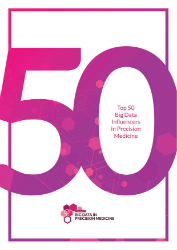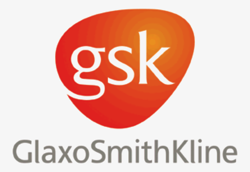
The Institute of Human Virology at the University of Maryland School of Medicine received a $14.4 million grant for HIV research.
The grant, awarded by the U.S. National Institute of Allergy and Infectious Diseases (NIAID), will fund research aimed at tackling a significant scientific challenge in HIV vaccine research – the inability to produce long-lasting antibodies to protect against the infection.

Supernus announced that the Food and Drug Administration (FDA) has granted tentative approval to the supplemental New Drug Application (sNDA) proposing a label expansion for Trokendi XR (topiramate) extended-release capsules to include prophylaxis of migraine headache in adults.

Twenty accomplished female life sciences executives will comprise the first ever cohort of Women In Bio’s Boardroom Ready program, the organization announced today. The women will spend five days this fall at George Washington University completing a new executive-level board certification training program to prepare them to join corporate Boards of Directors.

Pharmaceutical giant AstraZeneca's agreement to sell much of its antibiotics business won't impact operations at MedImmune, its Gaithersburg-based research and development arm, officials confirmed Wednesday.

In an ongoing effort to improve the experience of doing business in and/or with Montgomery County, County Executive Ike Leggett is inviting the business community to identify opportunities for streamlining and simplifying rules and regulations for businesses, and for improving the County government's services to businesses. Your anonymous and confidential feedback will help us identify areas where change will have a positive impact. Thank you for participating.

Johns Hopkins Medicine has launched the Johns Hopkins Wilmer Zika Center, where medical professionals focus on caring for patients with the Zika virus. The center is touted as the first multidisciplinary Zika center in the world.

Phil Magrogan, PMP, SCP4, ITIL Senior Program Manager Leidos
Agile represents a widely adopted set of principles that apply to small scale teams – typically 7 to 9 developers. Several authors have published frameworks, techniques, and methods for applying agile principles to large organizations – over 100 developers. Now that we have a few years of experience in applying agile to large scale organizations it is time to look back at what works and what doesn’t work so that large organizations can leverage good practices and avoid pitfalls performing with agile at scale.

The U.S. Food and Drug Administration on Monday issued emergency authorization for a Zika diagnostics test from Swiss drugmaker Roche, skirting normal approval channels as the regulator moves to fight the disease's spread.

Thomas Luginbill knows what it takes to be a successful entrepreneur. He spearheaded the founding of a campus organization when he was an undergraduate, helped start a family-run contracting business and co-created a start-up technology venture while studying for an MBA. This self-described "serial entrepreneur" has been named as director of the College of Southern Maryland's newly formed Entrepreneur and Innovation Institute (EII).

AstraZeneca announced it will sell the full commercialization and development rights of its late-stage small molecule antibiotics business to Pfizer, while AstraZeneca focuses on developing therapies for other main areas, according to a press release.

Life sciences investor Sofinnova Ventures is raising fund number 10 in what, as FierceBiotech notes, appears to be its largest fund to date. A previous fund, dating back to 2014, raised $500 million.

Before we start, long time readers know, we have no interest in trying to influence your political views or voting allegiance (not that we could). So please don't look for "hidden meanings" or agendas. If we have something to convey, we will come right out and say it.
We could have done several SBIR Insiders over the eight weeks, but none of them would have had much value because every time I thought we had something important to report, the story would change and the relevance of the Insider issue would have been moot.

Steve Klasko, president of Thomas Jefferson University and CEO of Jefferson Health, is the author of We Can Fix Healthcare: The Future Is Now, with Wharton adjunct professor Gregory P. Shea and Michael Hoad. In the book, the authors propose 12 disruptive transformations to the health care industry.
Klasko stopped by the Knowledge@Wharton Show on Sirius XM channel 111 with Nishad Rahman, a medical student at Jefferson, to talk about this changing industry.

More and more big firms are bringing young talent in-house in the hope that they will bring fresh ideas along with them and infuse new vigor into their companies. German pharma giant Bayer is also following this trend.

Health systems in developed countries face a twofold challenge: ensuring financial sustainability and improving quality. Digitization can help health systems achieve both these objectives and unlock substantial value through lower spending and superior healthcare delivery.

After decades of inconclusive results, researchers backed by Pfizer and Massachusetts General Hospital revealed that they had identified several genetic markers associated with depression earlier this month. It was the largest study of its kind, using data from more than 120,000 people.

In 2011, a supercomputer won $1 million on Jeopardy! In 2016, that same supercomputer is tackling a challenge quantified not in millions of dollars but in millions of cancer patients.
The goal is to use Watson’s natural language processing to mine the medical literature and a patient’s records to provide treatment advice. And this month the Watson computer system is drastically expanding its reach—from one hospital in Thailand to six in India and a planned 21 more in China.

Precision Medicine is gathering pace, driven by leaders from across healthcare, academia, Big Pharma, government, technology innovators and more. In the past year the investment of both time and resources into this exciting new area has grown exponentially with exciting projects and initiatives springing up across the globe.
For the first time Phacilitate has gathered all of these influencers and industry innovators together into the Top 50 Big Data Influencers in Precision Medicine eBook.

Chevy Chase venture fund New Enterprise Associates upped its bet on ThreatQuotient, a Reston-based cybersecurity analytics start-up, in a $12 million investment announced Tuesday.
ThreatQuotient operates a set of data analytics tools for corporate cybersecurity analysts, meant to help sort through the millions of data points that might predict the next hack. The company was founded in 2013 by two technologists working out of AOL’s Fishbowl Labs incubator in Sterling, Va., and chief executive John Czupak joined in late 2015.

The company, which employs more than 300 people at its plant in Ulverston, was praised for its work helping tackle diseases in both the western and developing world.
This list appeared in prestigious American publication Fortune, which has its headquarters in New York City.

Summer is a good time to review investment activity for pharmaceutical and biotech companies in the year so far and a new report shows that there’s still life for life science IPOs.

While driving and listening to National Public Radio one day, Justin Kao heard about the discovery of a “sweet tooth gene” that makes you more likely to crave sweets. “Oh my God,” thought Kao, who has always loved cookies. “I would pay $5 to know if I had that.”

Today’s medicines can cost hundreds of thousands of dollars a year. The story of how two companies set prices for their costly new drugs suggests that the way we determine the value of such treatments will help decide the future of our health-care system.